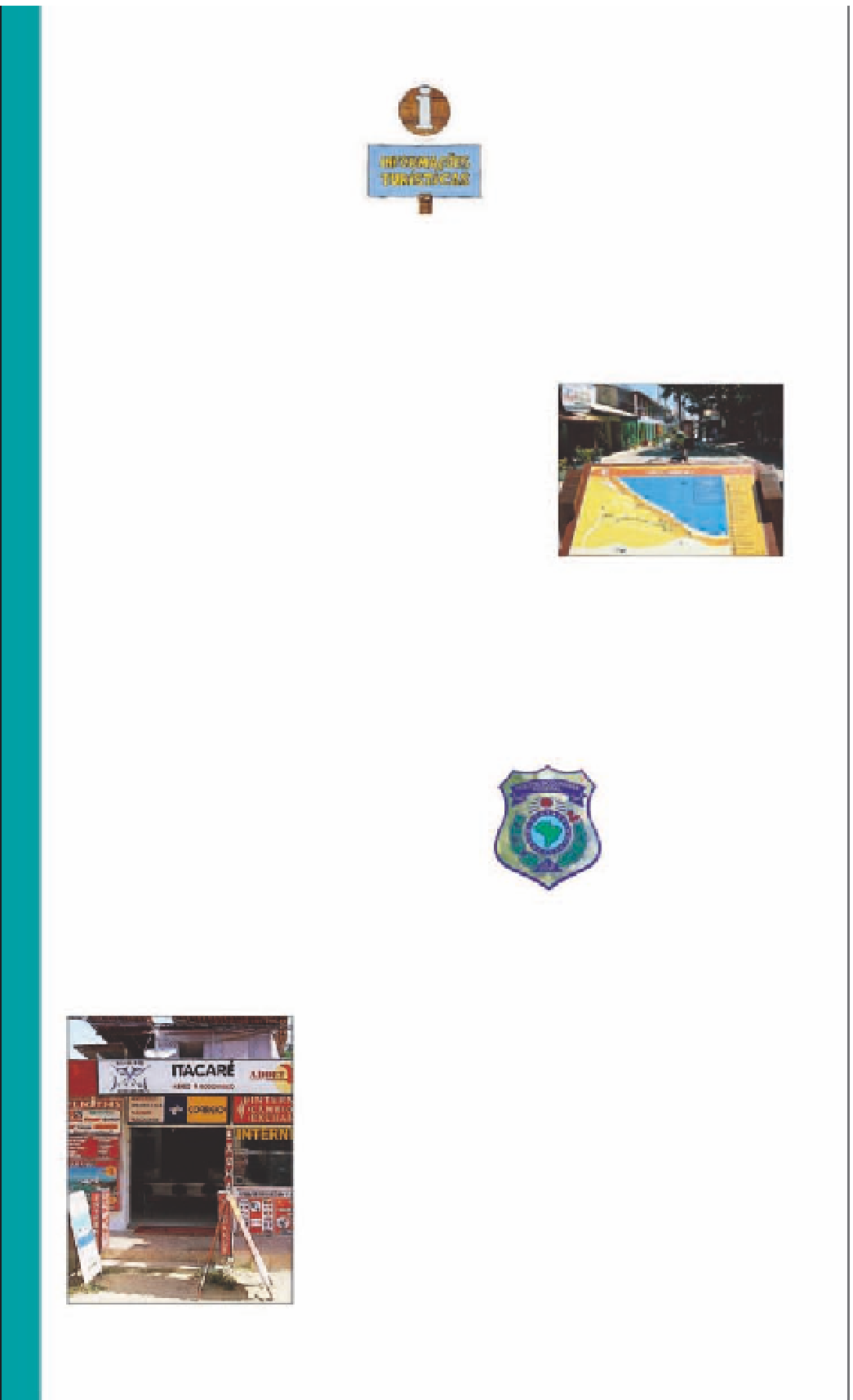Travel Reference
In-Depth Information
PRACTICAL INFORMATION
Tourism is one of the fastest
just one region. All major tourist
destinations are very well set up
to receive international visitors.
English and Spanish are gener-
ally spoken by those who work
in the tourism industry. However,
very few other Brazilians speak
English. Fortunately, the friendli-
ness and outgoing nature of the people
more than makes up for these chal-
lenges and Brazilians overall are very
helpful in assisting foreigners.
growing industries in Brazil,
and for the past decade,
the country has been investing
heavily in new airports, hotels,
and other facilities designed to
make the country more attractive
to visitors. Brazil offers a variety
of travel experiences for all ages
and tastes. The sheer size of Brazil
makes air travel almost a necessity for
those interested in exploring beyond
Tourist
information sign
WHEN TO GO
eye mask for sleeping on
buses, and a chain for
securing luggage to bus or
train seats. For a jungle trip,
a hammock is a good idea.
High season in Brazil runs
from Christmas to Carnaval
(held in February or early
March). Many musical and
cultural events take place in
these months. Although not
as busy, a second peak
season is during July and
August when schools and
universities have their winter
break and many Europeans
and North Americans visit on
their summer holidays. The
best times of year for lower
prices and fewer travelers
are the low seasons from
March to May and September
to November.
VISAS & PASSPORTS
All travelers to Brazil must
have a valid passport. Holders
of European Union or New
Zealand passports do not
require a visa. Those with US,
Canadian or Australian
passports need to apply for a
visa at the Brazilian embassy
or consulate in their country
of residence. Passport holders
of other nationalities should
check with the nearest
Brazilian embassy.
Upon arrival, visitors
receive a 90-day entry
stamp, which can be
extended for another
90 days by the
Polícia
Federal
, up to a
maximum of 180 days
per year. Visitors are also
required to fill out an
entry card that they must
keep with their passport at all
times. It must be surrendered
when leaving Brazil. Failure
to produce this slip of paper
may lead to a fine, and will
certainly result in a hassle.
The 90 days are added on
the day of renewal. There
may not be a requirement to
get an extension much before
the expiry date. An expired
visa cannot be extended.
The Polícia Federal may
request to see an outbound
ticket and proof of sufficient
funds for the remainder of
your stay. Those who outstay
their visa term will be fined
upon departure.
Map of Canoa Quebrada in one of
its streets to assist tourists
TOURIST INFORMATION
All international and domestic
airports in Brazil have tourist
information booths that offer
maps, brochures, and general
information. These are usually
run by either the state or
city's tourist office.
Embratur Overseas
Offices
, the national
tourist office, with its
headquarters in
Brasília, is run by the
Ministry of Tourism.
It has several overseas
offices, including those
in the United Kingdom,
the United States, France,
Germany, Spain, Portugal,
and Japan.
WHAT TO TAKE
Dress standards in Brazil
seem largely a matter of
personal taste. A sarong or
sheet sleeping bag is invalu-
able for use as a towel, a
bedsheet, or beach towel.
Bring a first-aid kit, raincoat,
sun hat, penknife, flashlight,
wax earplugs, insect repellent,
Polícia
Federal
badge
LANGUAGE
The language of Brazil is
Portuguese, but it is quite
different in style and pronun-
ciation from the Portuguese
spoken in Portugal. The lang-
uage has quite a few similari-
ties with Spanish. In major
tourist areas, the staff will
speak some English and/or
Spanish. However, in general,
English is not widely spoken
and often Brazilians will only
have a basic intermediate
knowledge of the language.
A local travel agency with Internet
facilities, Morro de São Paulo
Carnaval in Rio City









































